From the pages of Brownstoner magazine, here are the stories of six Brooklyn dwellers who adapted their interior spaces to suit their modern lives.
Each property offers a personal spin on Brooklyn living, including an artist’s whimsical Prospect Heights brownstone, a casual home for a family in Ditmas Park and a woodwork-filled Prospect Lefferts Gardens row house discovered by the owners in the 1970s.
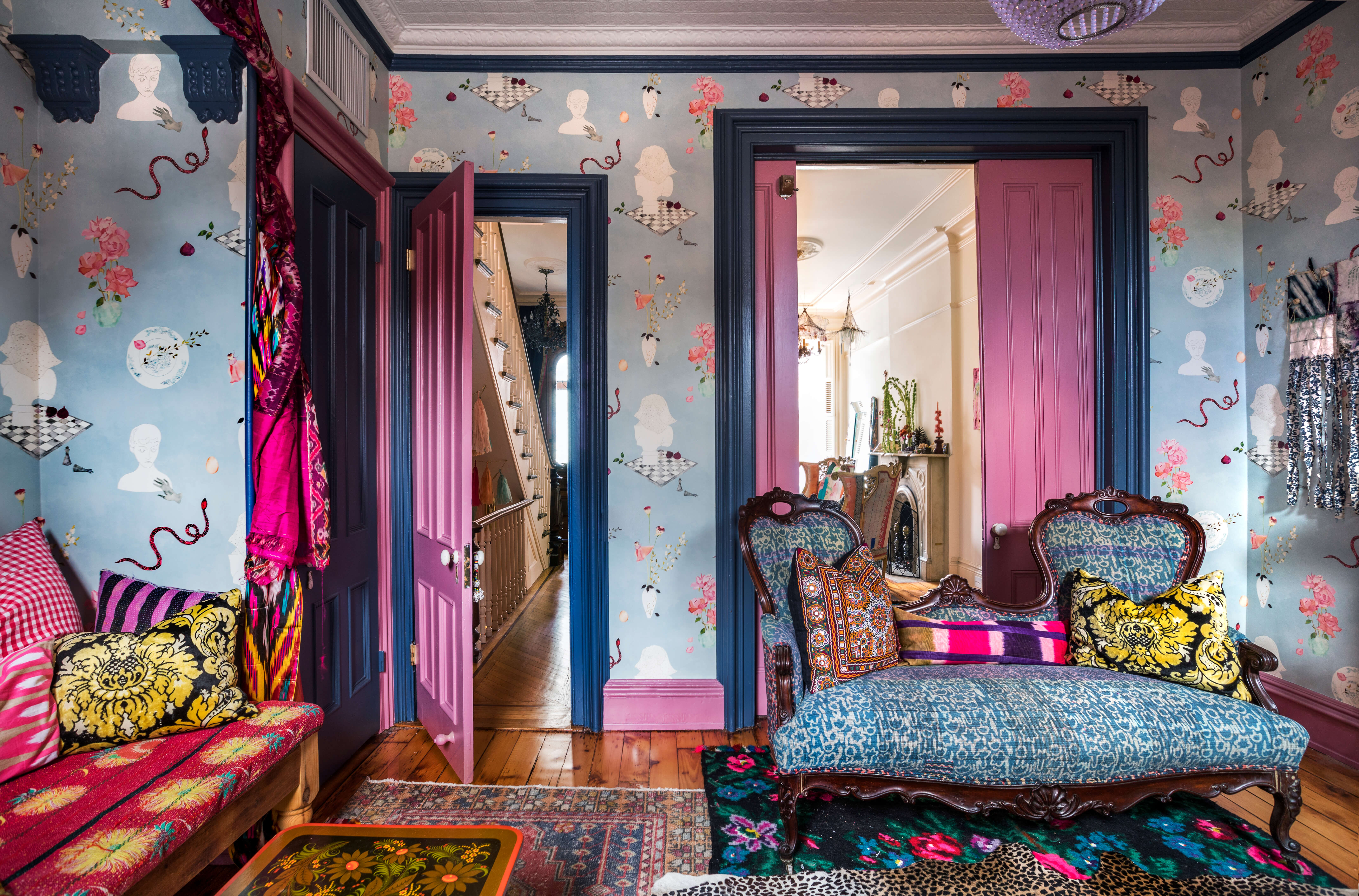
The color-saturated rear parlor is a thoroughly bohemian library where Silverman indulged her fondness for whimsical wallpaper with Maison C’s Natura Morta. A curvy Victorian settee invites lounging. The black flowered Bessarabian rug was handwoven in Romania. Photo by Lesley Unruh
Bohemian Rhapsody: Layered With History, a Prospect Heights Brownstone Embraces Color
A framed photograph of a high-spirited Victorian couple in a donkey cart on holiday hangs in the front hall of Cara Silverman’s Prospect Heights brownstone. The sepia-toned image, found in the house when Silverman bought it, may well be of early homeowners. They might be surprised to recognize their brass doorknob and a bell-pull, which yields a resounding clang, still in place at the entry of the three-story row house nearly a century and a half later. But there they still are, augmented with later additions by another homeowner, a passionate 20th century brownstoner: a whimsical door handle in the shape of an elephant’s trunk, a mail slot reading “LETTERS,” and a plaque with an Art Nouveau goddess.
—
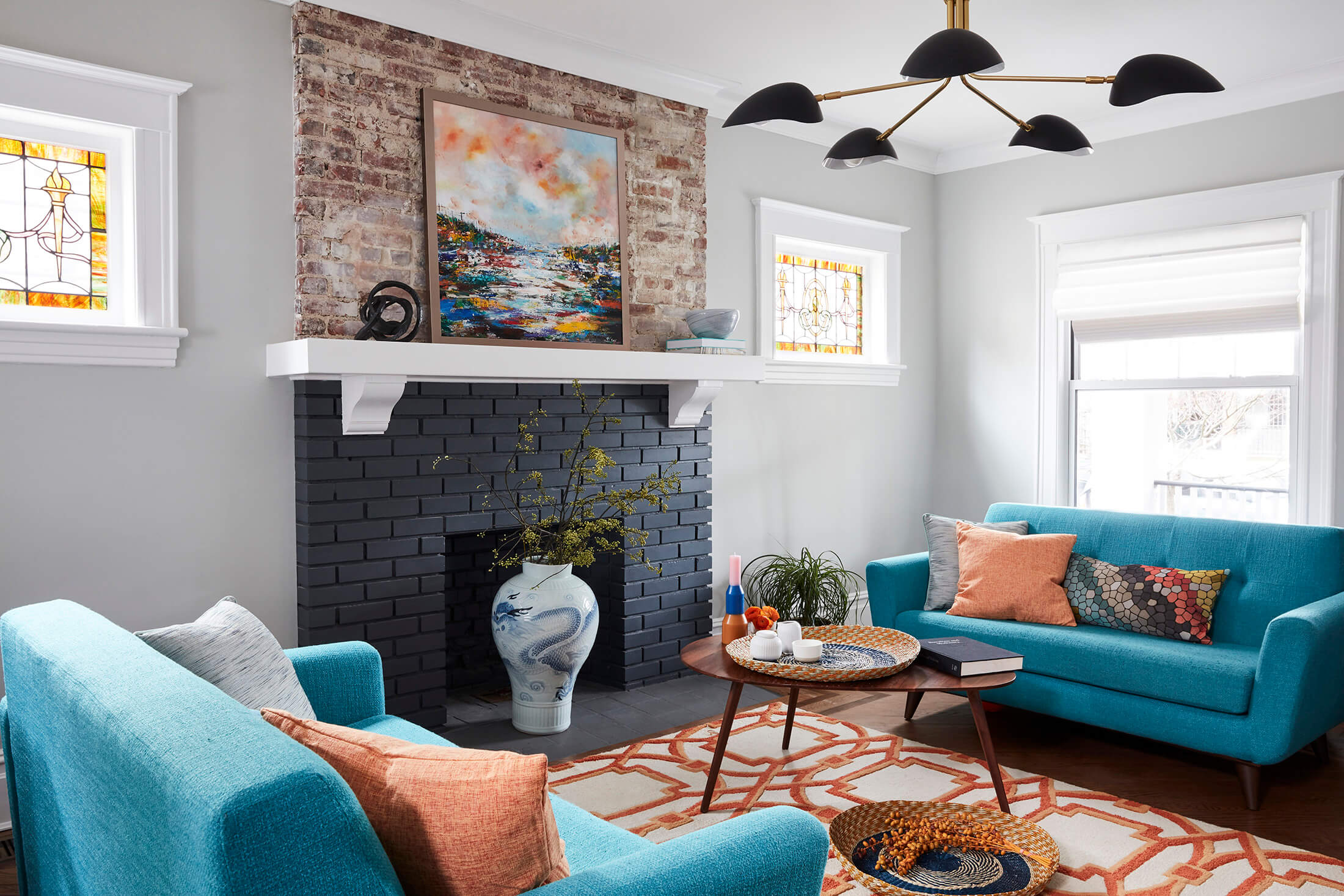
Clarity and color are the watch words in the living room. Photo by David A. Land
Blithe Spirits: An Inviting, Colorful Ditmas Park House Is a Pick-Me-Up
To Keita Turner, interior design is about much more than merely boosting function or adding decorative pizzazz. In all her projects, including the fresh and lively Ditmas Park house she orchestrated for a couple just launching a family, she aims for nothing less than to “uplift the spirit.” “People don’t often realize what an important role their surroundings play in their emotional satisfaction, for better or for worse,” says Turner, a refugee from the fashion industry who switched over to interior design in 2000 and has built an impressive roster of commercial and residential clients in the tri-state area and beyond. “Good interior design can enhance your life.”
—
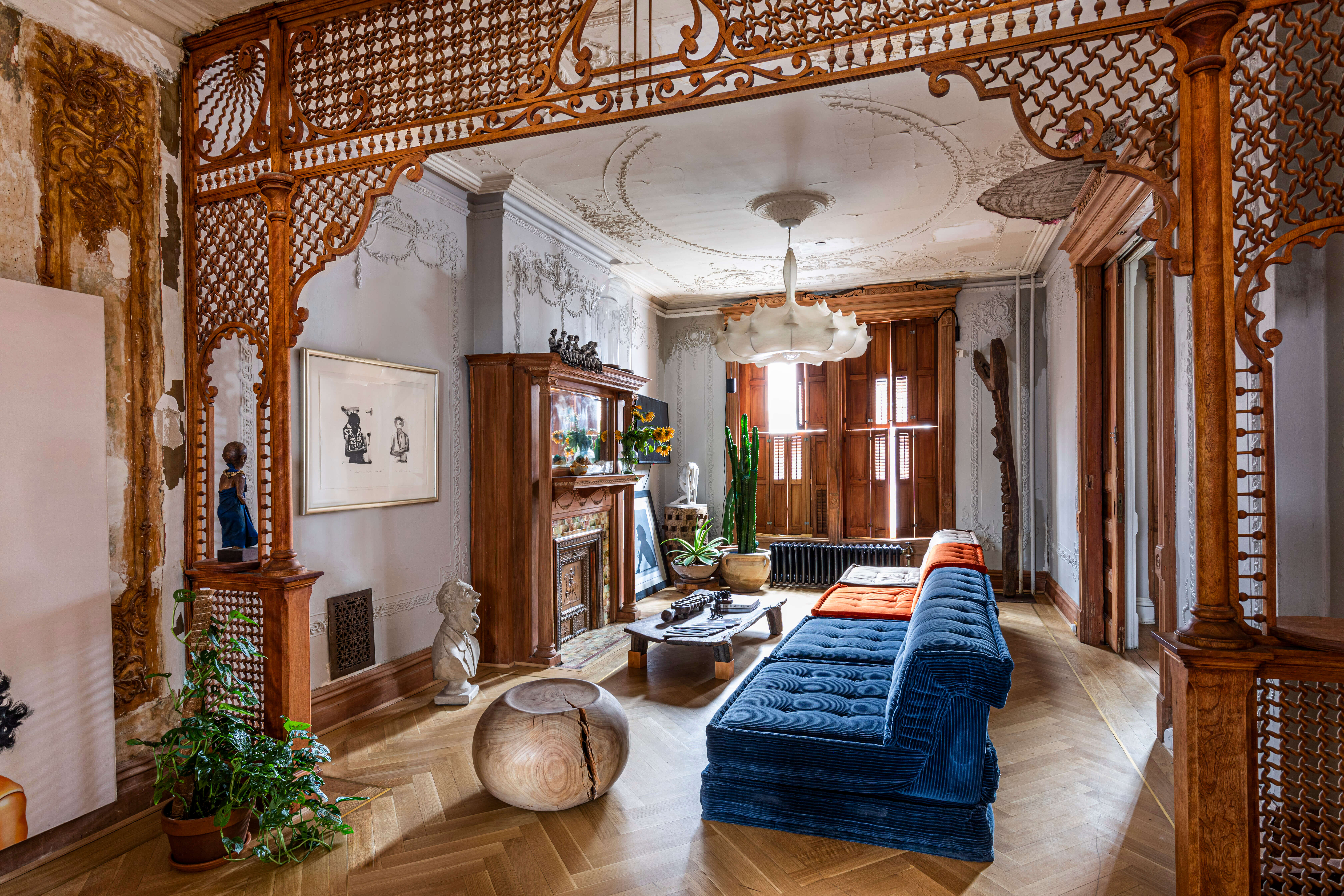
A view of the parlor floor in Shelley Victory’s 1890s Bed Study row house displays its extraordinary attributes: elaborate plaster decoration on walls and ceiling, extensive original woodwork and furnishings that are anything but conventional. Photo by Lesley Unruh
A Bed Stuy Homeowner Makes a Plasterwork Palace Her Own
Shelley Victory gestured into the front parlor of her limestone townhouse, whose walls and ceilings are covered with elaborate plaster relief decorations in varying states of repair, from nil to perfection. “Look at this plasterwork!” she exclaimed. “Isn’t it obnoxious?”
She doesn’t mean obnoxious in a pejorative sense, of course. It’s Victory’s synonym for fabulous, over-the-top, beyond belief. And indeed it is.
—
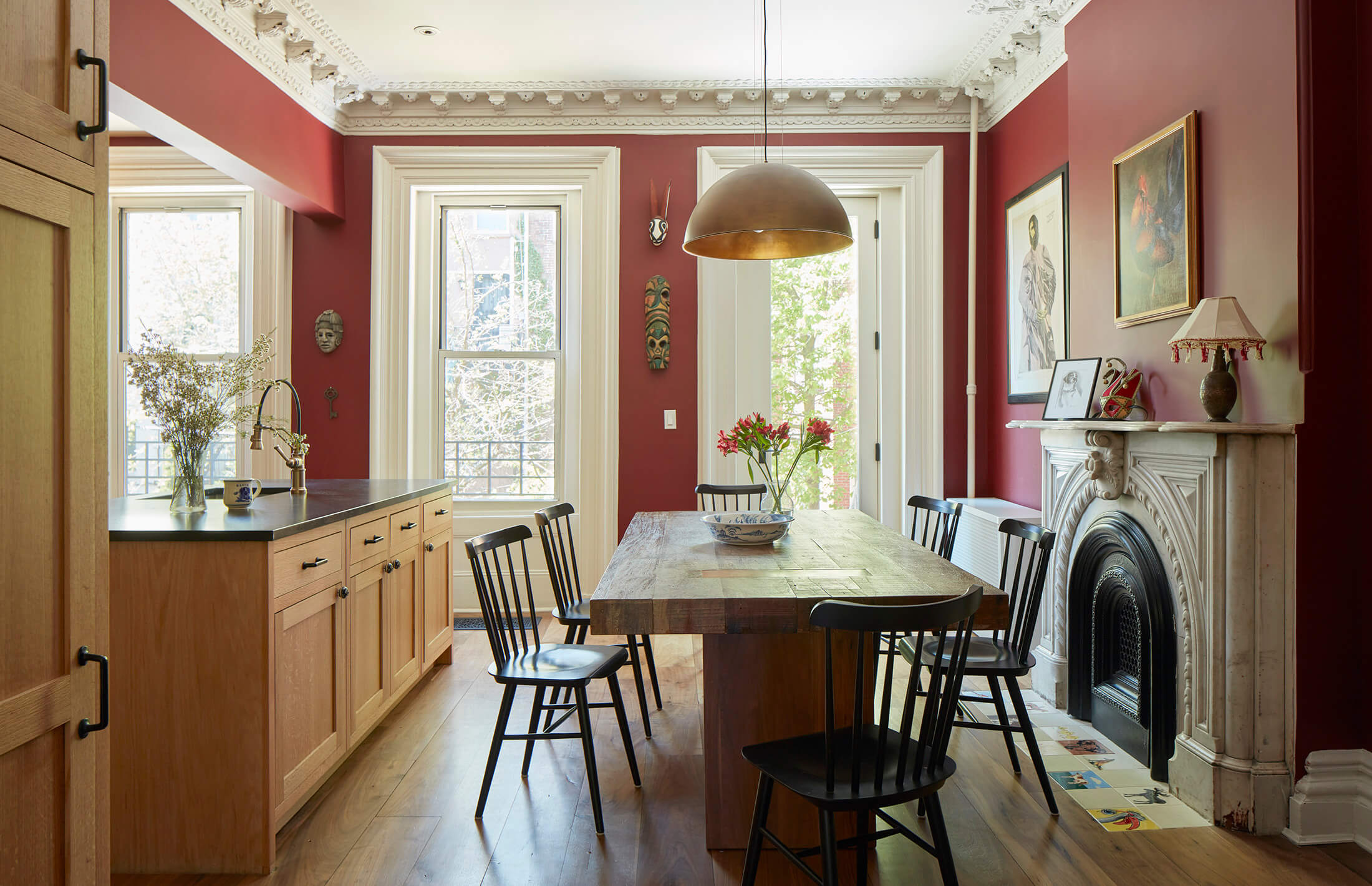
In the rear parlor, Benjamin Moore’s Classic Burgundy is a strong backdrop for a collection of masks and art by family members. The dining table, which came with the homeowners from their previous residence, is a rare concession to modern design; it is surrounded by spindle back Windsor-style chairs from Rejuvenation and illuminated by a gilded metal dome fixture from Shades of Light
Vibrant Vibes Enliven a Fort Greene Brownstone
Burgundy, mustard, Turkish blue – the rooms in Jackie and Jacob Baskin’s 1870s brownstone roam the paint chart, giving them exactly what they were after: immersive color. “We’d only lived in apartments before, so we thought, ‘If we’re going to spend an unconscionable amount of money buying and renovating our forever house, we might as well make it fun,’” said Jackie, a television documentary producer originally from Chicago. Jacob, a computer programmer who grew up in Toronto, where his parents had a house with a red dining room, was all in. “When I think about welcoming, friendly houses,” he says, “I think of bold colors.”
—
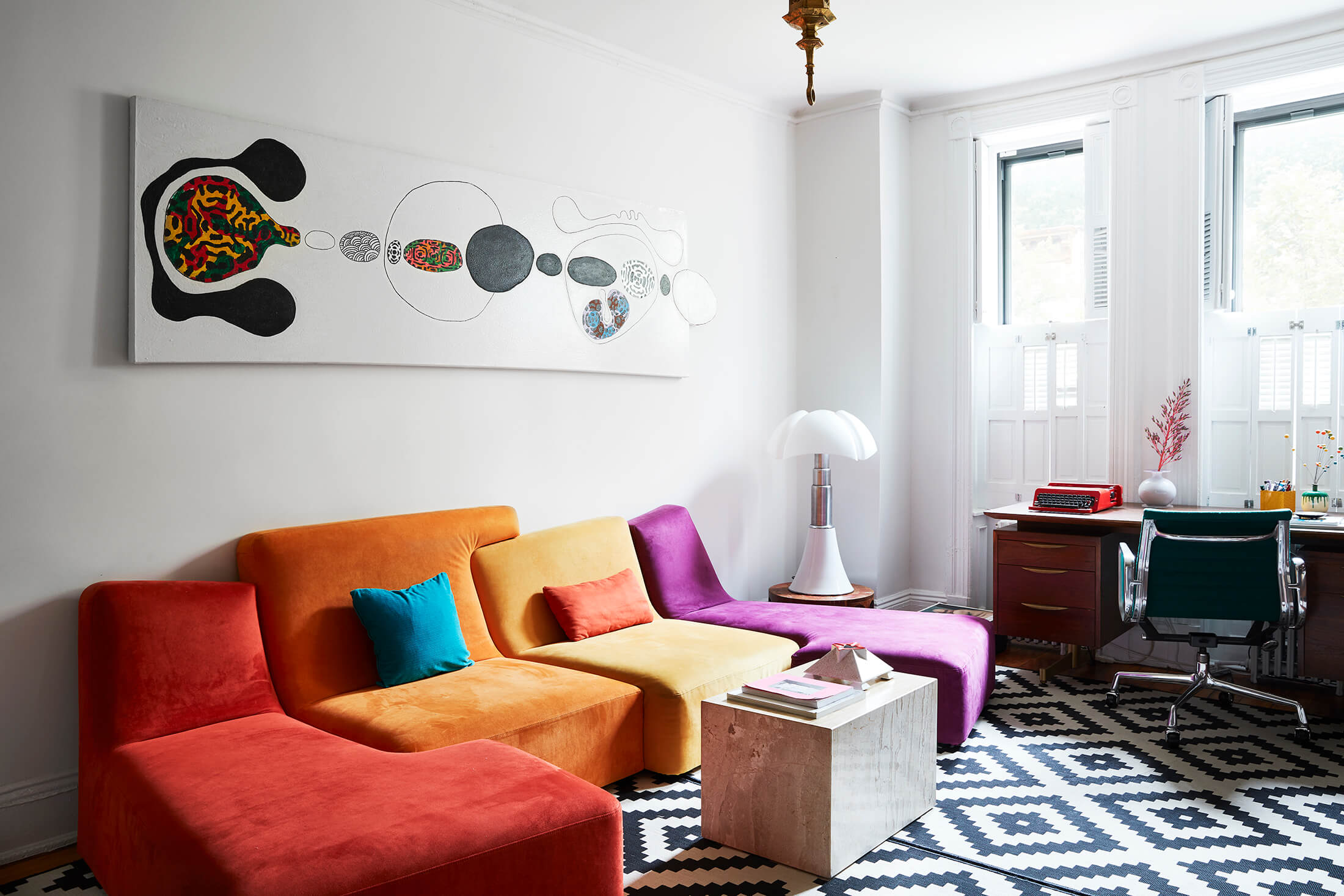
A Confluences modular sofa by Philippe Nigro for Ligne Roset and bright red Olivetti typewriter by Ettore Sottsass lend a Pop Art luster to the den
Going Back Home: Artist Paul Sue-Pat Brings Life to a Bed Stuy Townhouse
When Paul Sue-Pat first came to Bed Study, he wasn’t sure he liked the neighborhood. Born in Kingston, Jamaica, he arrived in New York after stopping in London, Miami and Connecticut with dreams of becoming an artist. His small studio was located on the first floor of a building on West 4th Street in Manhattan; the rent was $200 a month. He was struggling but happy, scraping out a living. But when the building was sold, the new owners wanted him and the other artists who had studio space there to move out. When the landlord comes with what Sue-Pat calls a “bag of cash,” he decides to follow the advice of some artist friends and move to Brooklyn. “I took the money and ran,” he said with a laugh.
—
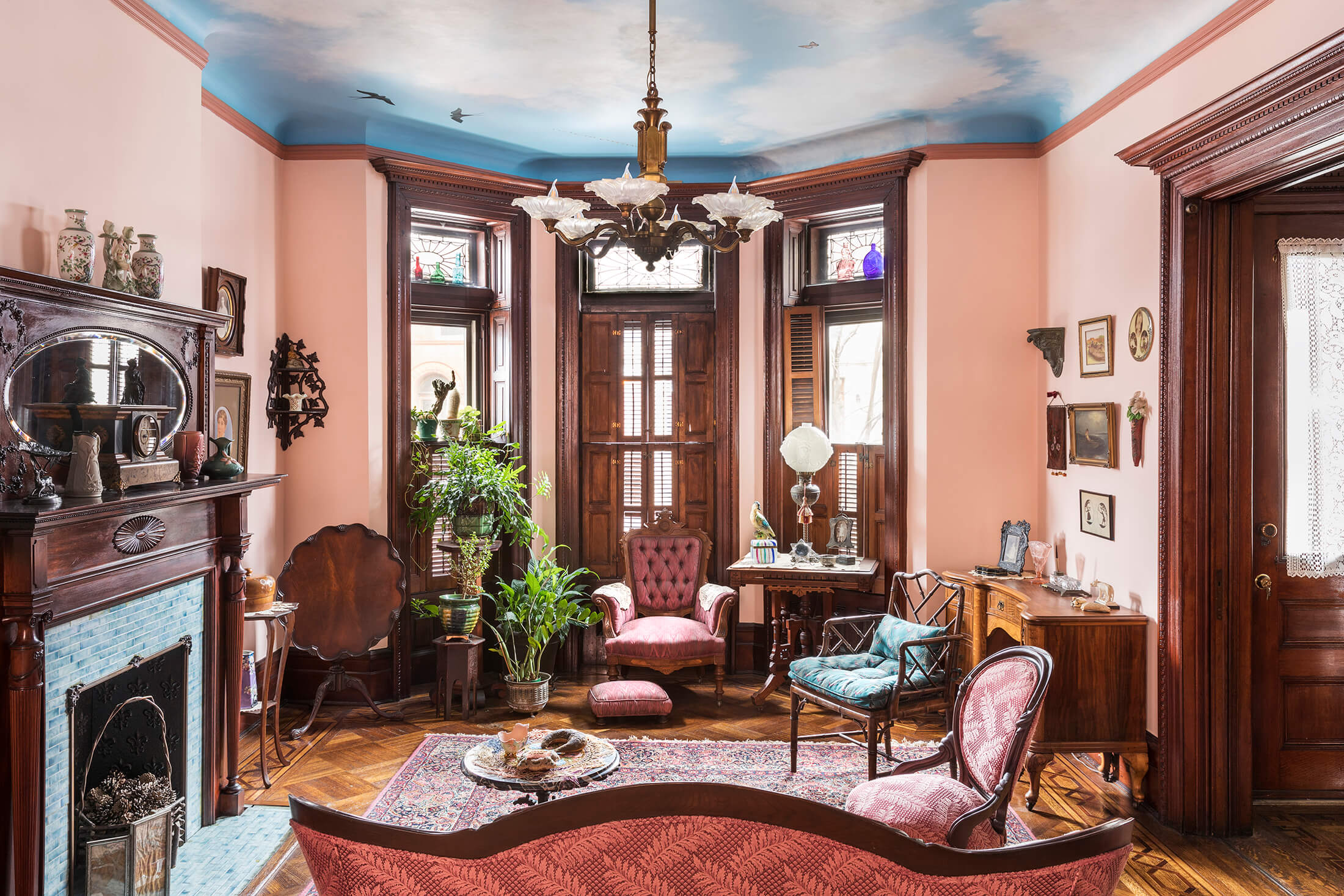
Antiques and vibrant colors set the tone in the parlor. Photo by Lesley Unruh
Schoolteacher’s Coup: Seeking an Integrated Neighborhood, a Couple Restores an 1899 House
Prospect-Lefferts Gardens was unusual when Elaine and Bob first visited in 1974 and it remains unusual today because it is racially integrated. “Saul Alinksy said integration was the brief period between when the first Black people moved to a neighborhood and the last white people moved out,” said Bob, quoting the famous activist. “That didn’t happen here.”
—
Related Stories
E-mail [email protected] with further comments, questions or tips. Follow Brownstoner on Twitter and Instagram, and like us on Facebook.
